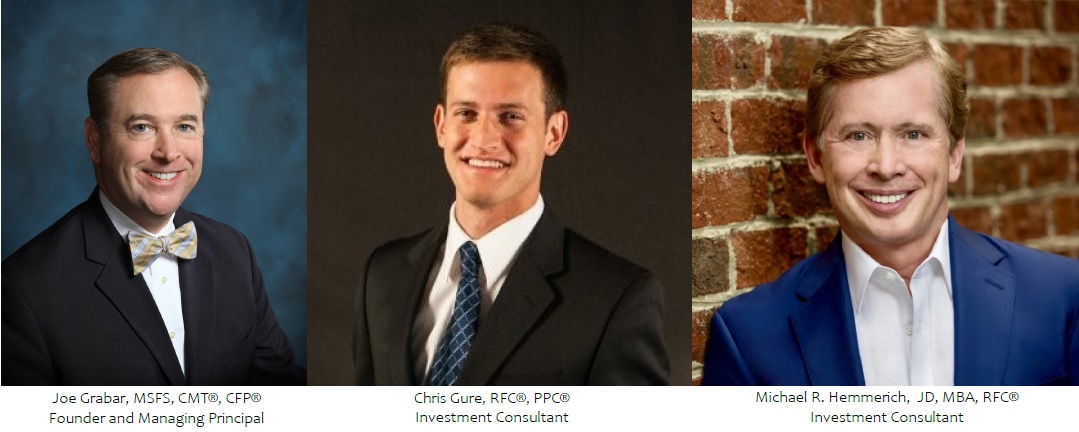A Unique Perspective on Real Estate Investing
Sponsored Content from RAD Diversified
Rise of the Gurus
If you're like me, you're probably bombarded every day with an endless barrage of online gurus promising effortless investment opportunities, exaggerated returns, all with little to no effort or experience.
Whilst this is nothing new, the exponential growth of social media, and platforms such as Instagram, Facebook and Twitter have put guru-selling to the forefront. Providing social proof and instant accessibility, these self-proclaimed masters of the universe dine on a near-infinite buffet of readily available customers, keen to make a quick buck.
So, should you listen? And who should you listen to? And how do you know what the next big thing is?
From just $107.88 $24.99 for Kiplinger Personal Finance
Become a smarter, better informed investor. Subscribe from just $107.88 $24.99, plus get up to 4 Special Issues

Sign up for Kiplinger’s Free Newsletters
Profit and prosper with the best of expert advice on investing, taxes, retirement, personal finance and more - straight to your e-mail.
Profit and prosper with the best of expert advice - straight to your e-mail.
Opt in today and learn how you can invest in the Creation, Protection & Preservation of Your Wealth.
Investing in education
As a single-family and stock investor, and someone that spent the last five years researching, reading and listening to a cavalcade of real estate advice, stock market predictions, and angel investing opportunities, I believe there is a better way. Like any form of investment, investing in real estate starts with investing in one’s self. A foundational education should be par for the course before leaping into any opportunity.
There are several key factors to consider when exploring any investment opportunity;
• Transparency, It starts with Transparency. What’s the return? How do you get paid? How does the fund manager get paid? And importantly, what’s the level of risk? Understanding, Does it feel like smoke or mirrors? Do you understand the mechanics? Or how you’re going to get paid? How about how the principal partner gets paid?
• Risk, How comfortable are you in losing everything? Risk is something seldom talked about, but is an important decision-making criteria. Like the stock market there is some principles within real estate that will keep your investment safe.
See how you can join the REIT that had a 36.7% return in the worst US economy in history.
Hands off vs. hands on investing
Real estate and passive investing are often discussed in the same breath. The reality is far more complex. As an investor in Single Family Home, I’ve lived and breathed the reality of ‘passive investing’ from late night boiler breakdowns, chasing rent, qualifying tenants, arranging laundry machine replacements, even triaging a flood and wrangling insurance companies. Passive sure did seem like a lot of hours.
See how you can invest in the future well being of you and your family with RAD Diversified.
A holistic approach - the benefits of a REIT
A key tenant of Tony Robbins book, Unshakeable, is that the smart money doesn’t try to guess the market, but instead, buys the entire market. Tony is talking about index funds, but there is another investment vehicle designed to safeguard returns through a holistic approach. REIT investments funds take into account a wider portfolio.
Unlike a single-family home, a REIT is less suspectable market changes or impact from tenants moving out. For example, if there is a downturn in Florida and you invested across multiple states via a REIT then you have some insulation against market changes.
Buying a single-family home, or a 1 to 4 unit multifamily property for that matter, is much like buying a single stock, hoping that that single stock appreciate and returns the dividends you require. Buying a REIT distributes the risk and also takes a more holistic approach. It is why invest in index funds because buying the whole market is more secure than buying a small piece of. As a result REITs deliver a cash and non-cash performance way beyond that average single family or 1 to 4 unit multi-family property.
Invest in the Most Lucrative Real Estate Market Created By COVID-19. Get Started.
Weathering a Storm
Over the past twelve months, we’ve seen the perfect economic storm. Markets reacting to global pandemics, inflation and retraction, payment defaults and mass unemployment have made stock investment less than smooth sailing. Interestingly, REIT returns have exceeded returns in the broad stock market during nearly two thirds of the past 20 years. In fact, REIT’s outpaced stocks by almost 3% during the past 20 years.
RAD Diversified made a 36.7% annualized return in 2020 - Invest with us here.
So why a REIT and, why RAD Diversified?
Beyond insta-posts, and paid Facebook adverts, RAD Diversified offers a reliable, proven investment system. They do what they say. Through the pandemic, RAD Diversified delivered monthly distributions aligned to their 5% bottom-line guarantee and has kept its entire staff employed while keeping the doors open without taking any government assistance during the COVID-19 pandemic, and in 2019, they realized a return of 44% for their investors.
Get started with RAD Diversified TODAY. Start your application process with a minimum investment of just $1,000. We offer several options for payouts as well as investor retreats twice a year.
This content was provided by RAD Diversified. Kiplinger is not affiliated with and does not endorse the company or products mentioned above.
Profit and prosper with the best of Kiplinger's advice on investing, taxes, retirement, personal finance and much more. Delivered daily. Enter your email in the box and click Sign Me Up.
-
 Nasdaq Leads a Rocky Risk-On Rally: Stock Market Today
Nasdaq Leads a Rocky Risk-On Rally: Stock Market TodayAnother worrying bout of late-session weakness couldn't take down the main equity indexes on Wednesday.
-
 Quiz: Do You Know How to Avoid the "Medigap Trap?"
Quiz: Do You Know How to Avoid the "Medigap Trap?"Quiz Test your basic knowledge of the "Medigap Trap" in our quick quiz.
-
 5 Top Tax-Efficient Mutual Funds for Smarter Investing
5 Top Tax-Efficient Mutual Funds for Smarter InvestingMutual funds are many things, but "tax-friendly" usually isn't one of them. These are the exceptions.
-
 What You Need to Know About Sustainable Investing
What You Need to Know About Sustainable InvestingSponsored Content from Domini Impact Investments
-
 A Look at the World’s Rarest Precious Metal and its Growing International Market
A Look at the World’s Rarest Precious Metal and its Growing International MarketSponsored Content from the Osmium Institute
-
 Raising a glass to an investment in wine
Raising a glass to an investment in wineSponsored Content from Cult Wines
-
Here's How to Invest in the Robotic Chefs That Are Ready to Take Over the Fast Food Game
Sponsored Content from Miso Robotics
-
The Best-Kept Secret to Income Investing
Sponsored Content from Aberdeen
-
How families, financial professionals and communities win by investing in education
A 2021 roundtable on the positive impact of 529 plans
-
The positive impact of 529 college savings plans
Terms and Privacy Policy
-
 Fortress Financial Partners Innovating the Financial Services Industry
Fortress Financial Partners Innovating the Financial Services IndustrySponsored Content from Financial Service Directory